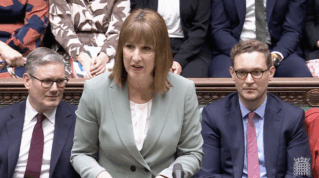There are some big decisions which would have been made this summer if the previous DfE incumbents had stayed in post, writes David Hughes
James Cleverley’s appointment to education secretary makes him the sixth person in that post in the six years I have been at AoC.
Not a great recipe for continuity, certainty and stability, but it’s not an unprecedented turnover rate.
Between 1964 and 1970 we also had six, across three and culminating with Margaret Thatcher in the post.
And there were five between 2001 and 2007, finishing in the split of responsibilities between Ed Balls and John Denham.
Historians will no doubt give views on what it all means and what we can read into it. My job is to make sense of it for the college sector.
In some ways the new education secretary and his team of ministers are in a caretaker role, with no mandate to – or perhaps much need – to make big decisions. That it’s happening over the summer helps to reinforce that view.
But there are some big decisions which would have been made this summer if the previous incumbents had stayed in post.
That makes it vital that the new ministerial team makes positive decisions and takes action on some things because delays could be damaging.
Equally there are some areas where an overt and transparent decision to delay would be extremely helpful.
On the positive side there are five sets of actions and decisions we will be pressing for:
1. ONS reclassification
Preparing the ground over the summer for the possible reclassification of colleges as public sector institutions.
The ONS is carrying out a review this summer and a decision is due in early September.
Reclassification will mean more work for colleges, at the very least to stitch their accounts into the Department for Education’s but it could bring some upside too.
There is a very simple case to be made for a VAT exemption for colleges which would result in an investment of over £200m into colleges and could easily be a promoted as a tax cut for productivity (something the candidates for PM might want to consider?).
2. Staff pay
Our calls to the previous ministerial team on help for colleges on staff pay, recruitment and retention received an encouraging response, and we continue to work with officials on ways DfE could help.
Given that it is likely that school pay will be resolved this month, it would be remiss if ministers left those proposals hanging until the autumn.
Among the proposals were more flexibilities on the additional 40-hours of learning and on the Adult Education Budget which could be decided this month.
3. Capital project funding
This summer will see many colleges commencing capital projects, with funding support from DfE which was bid for last year. In the time between bids and project start, construction costs have rocketed, and all those increases need to be met by college reserves and borrowing, with the DfE grant being fixed.
Help with this is an easy one, with a simple inflation adjustment to grants.
4. Local skills improvement plans
We are at a crucial time for the roll-out of LSIPs, so we want to see work continued, taking on board the lessons learned in the pilots and reflecting this week’s NAO report which questioned the DfE reliance on employers driving the skills agenda.
Ministers could put these together and set new expectations of the partnership approach they want to see, between employers and colleges, identifying skills priorities and working together to help deliver on them.
LSIPs provide a good vehicle for a quick response to the NAO report and I hope that ministers pick that up quickly.
There is also one area where I hope to see a decision to delay:
5. Level 3 qualifications review
I’m on record as calling the approach to this review “reckless” and I stand by that.
Our analysis, published last week, of the proposed defunding of 160 qualifications deemed as overlapping with T Levels showed that this could result in thousands of young people without a qualification to work towards.
A decision to delay this for at least an additional three-years would be a blessing for all and would reduce risks enormously. Behind this approach is a fear that colleges will not grow their T Level delivery.
I don’t think that will happen, but a simple 10 per cent premium on the funding rates for T Levels would be the best way to solve that, using underspends in the wider 16 to 19 budget which I am sure will emerge over the coming months.
There will be pressure for ministers to do as little as possible until the new PM and Cabinet are in place, but that would be a mistake.
Urgent issues need urgent action now.

















Your thoughts